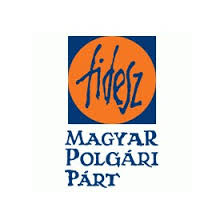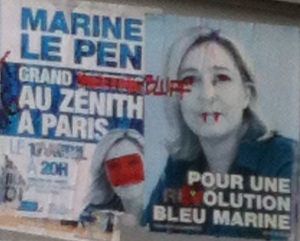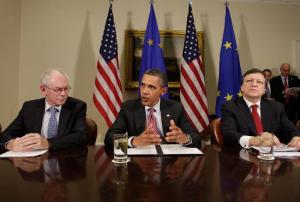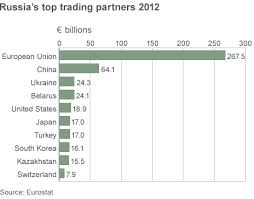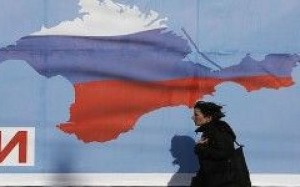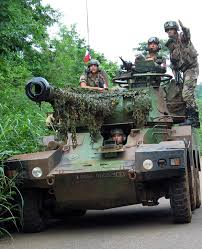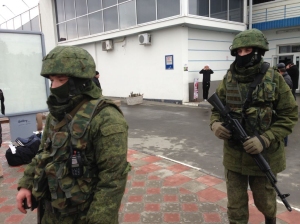Hungary’s 2014 Elections
Viktor Orban’s Fidesz party has again won the parliamentary elections conducted this Sunday, April 06, 2014. While many in Hungary applaud the outcome, many outsiders are nervous concerning this development. Orban’s previous administration raised many concerns amongst the international community. To understand why the Hungarian elections are newsworthy, and to understand these concerns, it is necessary to look back to Orban’s previous administration during the years 2010 – 2014, after winning a supermajority in parliament in the 2010 elections. This is the topic of examination addressed below.
Landslide in 2010
In the Hungarian Parliamentary elections of 2010, Viktor Orban’s Fidesz party won in a landslide, capturing over two-thirds of the seats in the chamber. There are many reasons for this. First, the opposition party, the Socialists, had emerged from the past two terms of government (2002-2010) with innumerable problems. This administration witnessed rampant corruption, ballooning deficits, and subordination of national interest to multinational corporations, among other problems. There is also, of course, the scandal of 2006 when the Socialist prime minister admitted that his party lied to the electorate concerning the country’s financial situation to win the election. In short, by 2010 popular approval for the party had hit an all-time low, and the Socialists barely managed to capture 19% of the popular vote in 2010. Building upon the frustrations with the previous administration, Fidesz offered major reform, a return to nationalist pride in the face of European integration and multinational corporations, and promises to purge the government of corruption. Above all, the party promised to complete the task of lustration (purging former communists from government positions). All of these issues struck a chord with the populace, which, combined with the dismal state of the opposition, brought about such a landslide victory. After victory, Fidesz shored up support with actions in keeping with electoral promises (and populist strategies) such as promoting nationalism by introducing a higher tax on foreign corporations, cutting the price of utilities, taking a Eurosceptic approach towards the European Union, nationalizing pensions and promising a stronger welfare state, and descrying the loss of Hungarian territory which occurred following World War I. The Fidesz party capitalized on the unpopularity of the Socialists and promoted ideals in opposition to the Socialist agenda. It is with this initial wave of support following the elections (known as ‘initial political capital’) that Orban’s Fidesz party introduced the landmark Basic Law of Hungary as well as new laws concerning the media, meant to insulate the party’s hold on power in the nation.
Constructing a New Constitution
Riding high on a wave of populist support, Fidesz, from mid-2010 to 2011 introduced a series of new legislation which run counter to traditional Western liberal ideals of government. Its two-thirds majority allowed the party to enact, to be blunt, any legislation it wished without the consultation of any opposition party. The party’s leaders immediately began work on a new constitution for the nation. If this seems an extreme first step, it is because it is necessary to view it in context. Prior to 2010, Hungary had been using the constitution of 1989 which immediately followed the collapse of communism. The drafters of that constitution envisioned that a more inclusive constitution would be drafted in later years, allowing for a two-thirds majority of parliamentary members to create a new constitution. Instead, owing to the extremely contentious nature of Hungarian party politics, no constitution was created; instead, the 1989 constitution was amended, interpreted by the Constitutional Court, and, in sum, was merely the source of a large body of legal interpretation and precedent. As Hungary modernized, and particularly after joining the European Union, it became clear that a new, proper constitution should be created, yet the fractious parties in Hungarian government were never able to work together to create one. Having won the required two-thirds majority, the first step that Fidesz took was to begin drafting a new constitution for Hungary, known as the Basic Law of Hungary. This was done without consultation with the opposition Socialist party, as remarked upon by the Council of Europe’s Venice Commission when reviewing the draft in early 2010. In the process the party promised a strong welfare state based on ethnic heritage and the conclusion of the lustration process (purging government of lingering communist influences), allowing them by and large to carry out their work unimpeded.
The Basic Law of Hungary and the Press and Media Act
The result of this process was the Basic Law of Hungary, acting as the new constitution, which became effective as of January 2012. Even before its completion, it faced intense criticisms from civil liberties activists and international non-governmental agencies including the OSCE, the Council of Europe, and the European Union. An opinion on the Basic Law was published by the Council of Europe’s Venice Commission, three months after its first, at the request of the Council of Europe’s Parliamentary Assembly (PACE). This is because the Basic Law, in combination with the Press and Media Act which quickly followed, puts in place several institutions and procedures that are not in keeping with Western liberal standards of government. Its preamble, to begin with, has clear and definitive ethnic overtones, in keeping with the party’s populist strategies. In keeping with this mindset, the Basic Law extends voting rights to ethnic Hungarians living in other nations, such as Slovakia and Romania, in territory that was Hungarian prior to WWI. This plays well with the nationalistic electoral support base of the party, but this is only the first issue.
In combination with the Press and Media Act, several changes were made regarding media distribution and censorship. All media regulation became subsumed under a single organization, the National Media and Infocommunications Authority, composed of a presidency, a Media Council, and an Office of the Authority. The president of the authority also acts as the chair of the media council, effectively placing all media regulation functions in the hands of a single individual, to be appointed by Parliament for a term of 9 years. Under the rules of the Authority, all media outlets must be registered within 90 days of commencing operations. This registration can be revoked at any time on the basis of (vaguely worded) “repeated severe violation of the law” or a “gross breach of obligations.” These outlets, in order to retain their registration, must also, per law, provide “objective and balanced coverage” (to be defined, of course, by the Media Council). Decisions of the National Media Authority cannot be appealed and overridden, and, in addition to the power of revoking an outlet’s registration, the Authority may impose fines up to 166,000 euro per offense. Public broadcasting is likewise brought under the control of a single government agency, the Public Service Foundation. While its members are elected by Parliament, the chair of the Foundation is directly appointed by the Media Council for a term of 9 years. The Media Council likewise appoints the Board of Trustees of the Public Service Foundation, and all executives of the public broadcasting companies are appointed in fact by the President of the Media Authority. In so doing, the Fidesz government repealed laws prohibiting media monopoly, which were formerly enshrined in the Constitution, without replacing them, so as to leave the Constitutional Court without the means to challenge the new organizational structure. In essence, what Fidesz created a single authority, to wit, the President of the Media and Infocommunications Authority, who is appointed by the prime minister for a term of 9 years (indefinitely renewable), in whom is vested all ultimate authority over all the media outlets in the country. This creates a situation in which the Fidesz government, through power of appointment, has ultimate control over all media information being broadcast to the public.
After consolidating the media, Fidesz turned to the courts. The Constitutional Court of Hungary is well-known, even by the standards of Eastern European nations, as a major actor in political affairs. It is upon the basis of Constitutional Court decisions that much of government functioned prior to 2010, lacking clear guidance from the 1989 constitution. Fidesz increased the number of Constitutional Court members from 11 to 15, allowing it to appoint four new members of their choosing. It also made extensive use of so-called “Cardinal Acts,” acts of legislation requiring a two-thirds majority to pass or repeal, to keep many important issues out of the constitution and thus out of reach of the Constitutional Court. Examples include laws governing management of national assets, taxation, the pension system, rules on eligibility to run for office, rules for the rights of diverse nationalities, and rules concerning the reform and creation of national regulatory agencies, among others. Most importantly, the Fidesz government enshrined the powers of the Constitutional Court in a Cardinal Act rather than in the Basic Law, meaning, in effect, that the Court cannot defend its power to review any legislation based upon the rights granted it because it has only the power to review legislation on the basis of the Basic Law. In other words, the Constitutional Court has been effectively stripped of most of its former powers and has no right to appeal this change.
The Supreme Court was renamed the Curia in the Basic Law, allowing for a new (9 year) appointment of the President of the Curia by the ruling Fidesz government. Likewise, the Chief Prosecutor as a position was established as the Supreme Prosecutor, together with a new (9 year) appointment. Beyond this, the retirement age for prosecutors and judges was lowered from 70 to 62, allowing for a wave of new appointments to be made in the course of the four-year administration.
Finally, the ‘power of the purse,’ power over the central bank, was vested in a Budget Council, with its president appointed by the prime minister. The President of the Budget Council provides all final approval to the state budget. This, of course, was set in place by Cardinal Act rather than constitutionally. Further, Fidesz waived the right of the Constitutional Court to examine the budget if the nation’s debt exceeds 50% of its GDP (as of the law’s inception, debt was 80% of GDP). These measures were justified on the pretense of keeping the deficit within the levels required for European Union accession.
In sum, the Basic Law of Hungary, together with the Press and Media Act, delegated broad authority to democratically unaccountable agencies, staffed with appointed officials with long terms of office, introduced broad state censorship powers without the right of appeal, delegated the ‘power of the purse’ to a democratically unaccountable agency in the Budget Council with no chance of oversight in the near future, interred control over the judiciary in the form of one (appointed) official, the President of the Curia, and left many areas of the law purposefully vague and subject to the interpretation of those officials appointed by Fidesz’s majority government. It is not surprising, then, that many in Europe saw this as a step backward for democracy in Hungary, and both the Basic Law and the Press and Media Act have come under intense criticism.
To date, however, objections by civil society organizations, the OSCE, and the Council of Europe have largely been ignored. The International Monetary Fund, while concerned about the institution of the Budget Council, did not withdraw financial aid. The European Union, while it entered suit regarding the Budget Council and in reference to Freedom of Information legislation, has largely remained silent on the issue. Even if there were the political will within the European Commission, Article 51 of the Charter of Fundamental Rights of the European Union precludes it from interfering with national governments unless it is in the act of implementing European Union legislation. Arguments that Hungary no longer meets the “Copenhagen Criteria” for membership are difficult to sustain, and even less likely to be the basis of any European Union action. The democratic backslide of Hungary cannot (and will not) be reversed by external factors alone.
Conclusion
The measures taken in the drafting of the Basic Law of Hungary and the Press and Media Act, which still stand largely intact, are moving the country towards a brand of one-party rule. The Council of Europe, the OSCE, the European Union, and even the International Monetary Fund appear helpless to reverse these trends. The Fidesz government, using traditional populist strategies, has consolidated all branches of government for complete domination. Most of the reforms introduced during the first administration remain standing, and old-fashioned gerrymandering (combined with a reduction in the number of Members of Parliament) further cements the party’s power. The legal changes will require another two-thirds majority for their repeal, unlikely given the extremely partisan nature of Hungarian politics. With the success of Fidesz in the recent election, these changes are likely to become even more entrenched, and the situation becomes even more worrying. It may not be too drastic to say that Hungary is experiencing a democratic backslide, and the possibility of one-party rule looms large. This is a real and tangible issue that confronts both Europe and the world beyond it.
